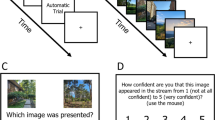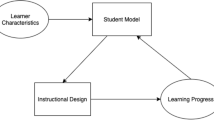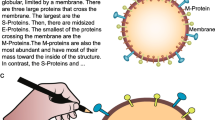Abstract
A hypertext learner navigates with a instinctive feeling for a knowledge. The learner does not know her queries, although she has a feeling for them. A learner’s navigation appears as complete upon the emergence of an aesthetic pleasure, called rasa. The order of arrival or the associational logic and even the temporal order are not relevant to this emergence. The completeness of aesthetics is important. The learner does not look for the intention of the writer, neither does she look for significance. Lexia has a suggestive power and she is suggested in the arrival of aesthetics. Hypertext learning does not depend on communication. The learner in her pleasure transgresses the bounds of space-time to be in communion with several writers/learners. Hypertext learning does not appear to be fundamentally different from the analog learning; however, in performance, as in navigation, the learner assumes a mental state that helps her in her emergence into aesthetic bliss, of an arrival to the completed lexial navigation. This completeness is owing to aesthetics and is not owing to either the semantics or the query-fulfilling qualities.
Similar content being viewed by others
References
Aarseth EJ (1997). Cybertext: perspectives on ergodic literature. Johns Hopkins University Press, Baltimore, MD
Abhinavagupta (1990) The dhvanyaloka of anandavardhana with the locana of abhinavagupta. Harvard University Press, Cambridge, MA
Agamben G (1991) Language and death: the place of negativity. University of Minnesota Press, Minneapolis, MN
Bachelard G (1994) The poetics of space. Beacon Press, Boston, MA
Banerjee P (2001a) Developing self-searched curriculum based on epistemic queries. Edu Technol Soc 4(3):29–36
Banerjee P (2001b) Beyond deliberative and difference democracy: rasa and a cognitive democracy (mimeo)
Bardini T (1997) Bridging the gulfs: from hypertext to cyberspace. J Comp Med Comm http://jcmc.huji.ac.il/vol3/issue2/bardini.html. Cited 1997
Benjamin W (1969) Illuminations. Shocken Books, New York
Benjamin W (1997) One-way street. Verso, London
Burke K (1969) A grammar of motives. University of California Press, Berkeley, CA
Derrida J (1995) Archive fever: A Freudian impression. The University of Chicago Press, Chicago, IL
Fodor J (1975) The language of thought. Crowel, NY
Foucault M (1972) The archaeology of knowledge and the discourse on language. Pantheon, New York
Gnoli R (1968) The aesthetic experience according to Abhinavagupta. Varanasi: The Chowkhamba Sanskrit Series Office
Grice P (1989) Studies in the way of words. Harvard University Press, Cambridge, MA
Head M, Archer N, Yuan Y (1996) World Wide Web navigation aids. Int J Hum Comp Stud 53(2):301–330
Halasz FG (1988) Reflections on notecards: seven issues for the next generation of hypermedia systems. Comm ACM July:836–852
Halliday M (1985) An introduction to functional grammar. Edward Arnold, London
Hogan PC (1996). Toward a cognitive science of poetics. http://cogweb.english.uscb.edu/Bibliography.html#literarystudies. Cited 1996
Kendall R (1998) Truth, beauty and hypertext. http://www.worldcircuits.com/comment/htlit_1.htm. Cited 1998
Kittler FA (1990) Discourse networks 1800/1900. Stanford University Press, Palo Alto, CA
Koskimaa R (1997) Visual structuring of hypertext narratives. http://www.altx.com/ebr/ebr6/6koskimaa/kosbody1.htm. Cited 1997
Landow G (1992) Hypertext: the convergence of contemporary literary theory and technology. Johns Hopkins University Press, Baltimore, MD
Laurie J (2001) Distilling a language for cyberspace. Edu Technol Soc 4(3):1–10
Mammata (1967) Kavyaprakasha of Mammata with English translation. By Mm. G. Jha. Varanasi: Bharatiya Vidya Prakashan.
Marvin LE (1995) Spoof, spam, lurk and lag: the aesthetics of text-based virtual-realities. http://www.ascusc.org/jcmc/vol1/issue2/marvin.html. Cited 1995
Montfort N (2000) Cybertext killed the hypertext star. http://www.altx.com/ebr/ebr11/11mon/. Cited 2000
Morgan MC (2000) Getting beyond the chat: encouraging and managing online discussions. http://cal.bemidji.msus.edu/english/morgan/onlinediscussion/index.html. Cited 2000
Morgan W (1999) Heterotopics: towards a grammar of hyperlinks. http://www.worldcircuits.com/htww/morgan1.htm. Cited 1999
Moulthrop S (1994) Beyond node/link. http://raven.ubalt.edu/staff/moulthrop/hypertexts/hoptext/. Cited 1994
Raley R (2001) Reveal codes: hypertext and performance. http://jefferson.village.virginia.edu/pmc/current.issuse/12.1raley.html. Cited 2001
Shank G (1993) Abductive multiloguing: the semiotic dynamics of navigating the net. http://www.monash.edu.au/journals/ejvc/shank.v1n1. Cited 1993
Ulmer G (1991) Grammotology hypermedia. http://muse.jhu.edu/journals/postmodern_culture/v001/1.2ulmer.html. Cited 1991
Wallace KA (1999) Anonymity. Eth Info Technol 1:23–35
Author information
Authors and Affiliations
Corresponding author
Rights and permissions
About this article
Cite this article
Banerjee, P. Aesthetics of navigational performance in hypertext. AI & Soc 18, 297–309 (2004). https://doi.org/10.1007/s00146-004-0296-z
Received:
Accepted:
Published:
Issue Date:
DOI: https://doi.org/10.1007/s00146-004-0296-z




